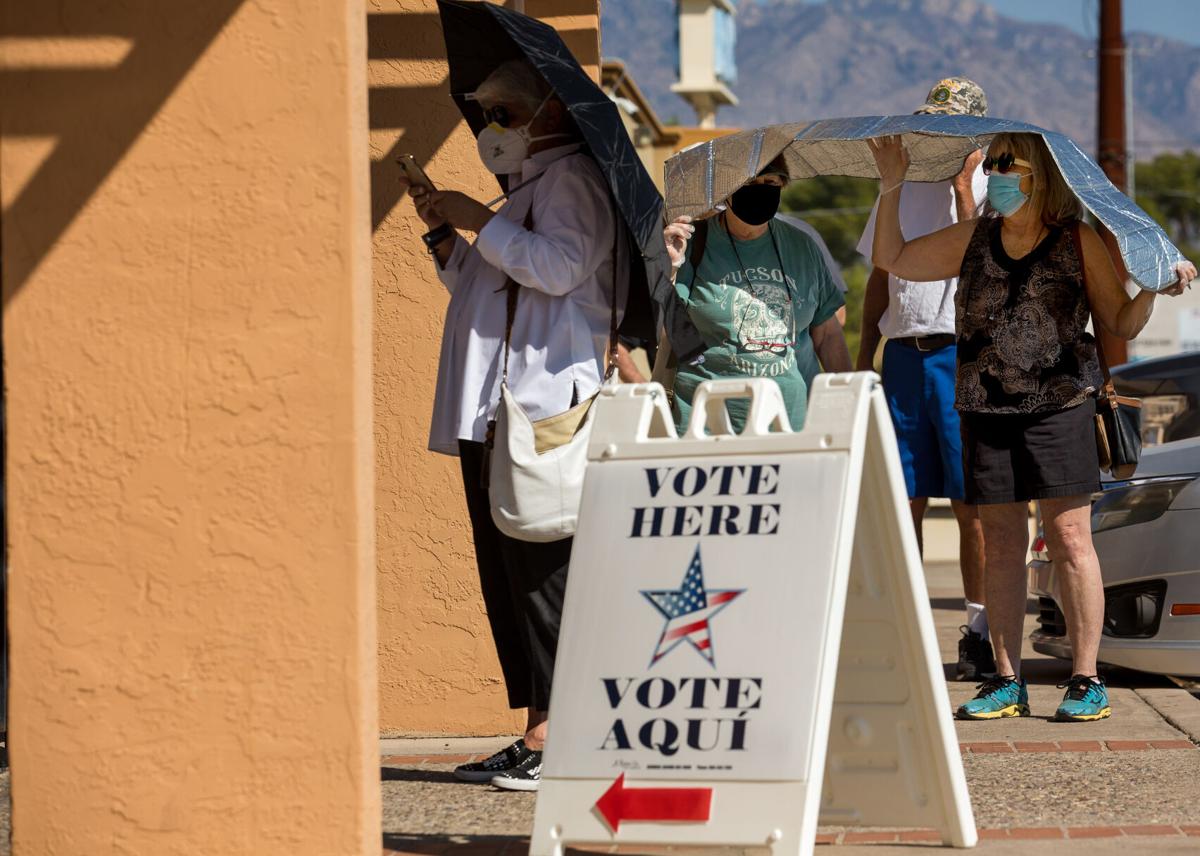Voters are being asked to give the city’s top officials a pay raise this November through Proposition 410, a ballot measure that could impact the quality of Tucson’s future leadership for years.
As it stands, City Council members earn below minimum wage and the mayor is paid thousands of dollars less than many of her own staffers. Both positions are full time but neither salary is normal — officials here make far less than their counterparts in nearby cities that are half the size of Tucson.
A “yes” vote for Prop. 410 will raise mayor and council salaries for the first time in two decades. The mayor’s pay would jump from $42,000 to $54,000 a year, and council member salaries would increase from $24,000 to $36,000 a year. Both would continue to rise with inflation after that.
The amount of money needed to fund the raises equates to about 15 cents per year for residents, and supporters of the measure said it could pave the way for more diverse and highly qualified candidates to run for leadership roles in future elections.
“These folks are deciding on our water security, urban planning, land use, hugely critical issues for our city and they’re making less than minimum wage. It just isn’t right,” said Laura Dent, one of seven members of the Citizens Commission on Public Service and Compensation that recommended the raises.
The majority of Tucson’s council members work two jobs in order to make ends meet. Paul Cunningham, councilman for Ward 2, said he can manage the workload but believes it can be a barrier that prevents others from entering city office.
Proponents of the ballot measure said single mothers are one group that might struggle to hold office given the low salaries. The same is true for young adults who need to support themselves with little savings.
The result can be a pool of City Council or mayoral candidates who don’t reflect the citizens they want to represent.
“When you make it so prohibitive that the only people who can run are independently wealthy or retired, you’re really not getting a cross section of what Tucson is,” said Cunningham, who also teaches at Gridley Middle School.
Unlivable salaries may also be driving some of the most highly qualified candidates away from Tucson’s top positions.
Those who run for city office don’t usually do it for the money, according to Dent. They may be willing to sacrifice some income — and might be capable of taking on a double workload — but giving up all of their free time to work two jobs is a big ask.
Tucson’s pay scale forces prospective candidates to weigh that cost before running for mayor or council positions. If top talent decides it’s too high of a price to pay, residents could lose out on the best people for the job in future elections, Cunningham explained.
“You’ve got a lot of people out there who think they can do a great job as City Council members and they take one look at the salary, let alone the impact on quality of life, and they probably would pass,” the Ward 2 councilman said.
Other cities in Arizona might have already figured this out. Chandler’s mayor is paid 35% more to represent a population that’s half the size of Tucson’s. Glendale is even smaller, yet its council members make 42% more than those in the state’s second largest city.
The disparity is far more significant when comparing Tucson to cities with similar population sizes. Mesa’s mayor makes about 75% more than Mayor Regina Romero, and council member salaries there are almost 90% higher than they are here.
The compensation commission has been trying to bring Tucson up to speed on this issue for decades. The citizen-composed group asks voters to raise the salaries almost every two years; the process excludes the mayor and council in order to avoid a conflict of interest.
November will mark the eighth time such a measure has appeared on the ballot since voters approved Proposition 100 in 1999, when the dollar was worth 63% more than it is today.
Voters have consistently rejected similar ballot measures ever since. It’s unclear if Prop. 410 will be any different, but if voters approve it this time around the pay increase will go into effect in 2023.
“I’ve spent some time living and working here in this community, across the state and I just feel like this is an opportunity for us to invest in ourselves. I just feel like it has a lot of appeal and I hope the voters can see it that way too,” Dent said.





